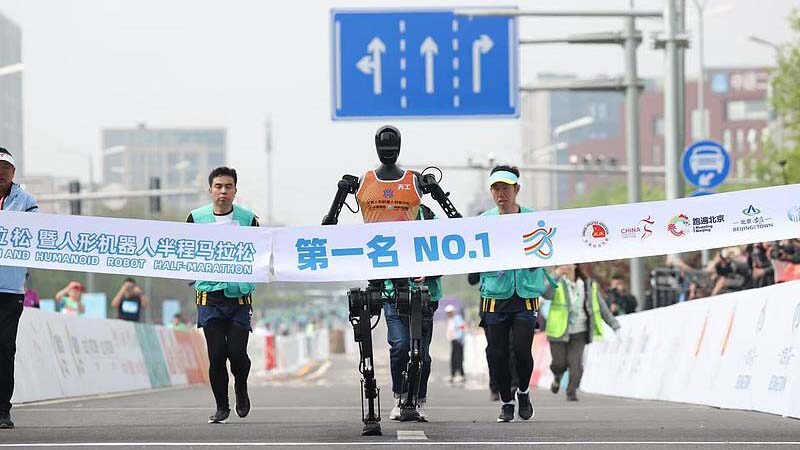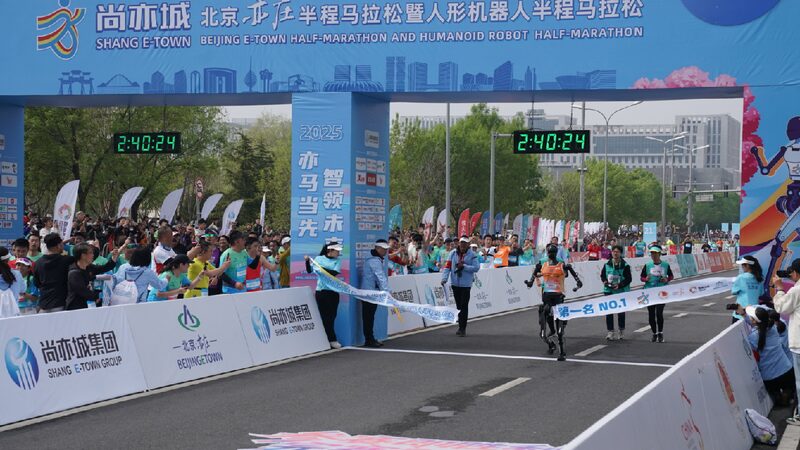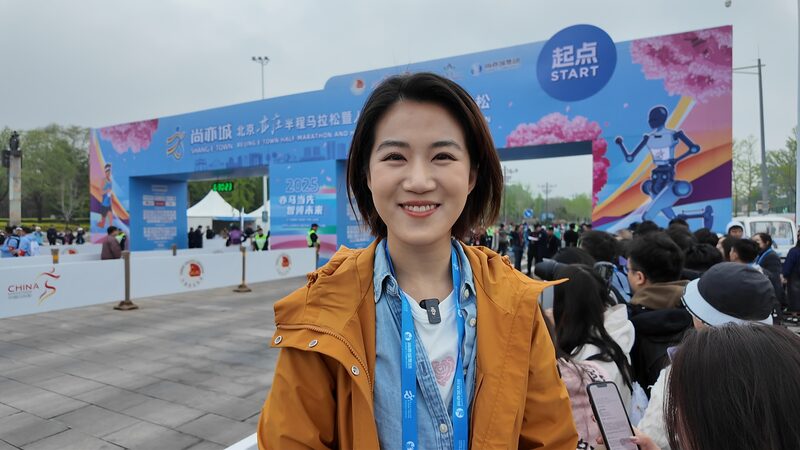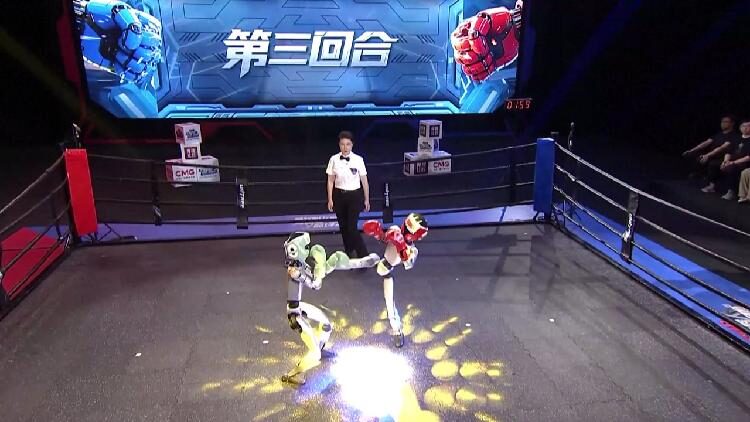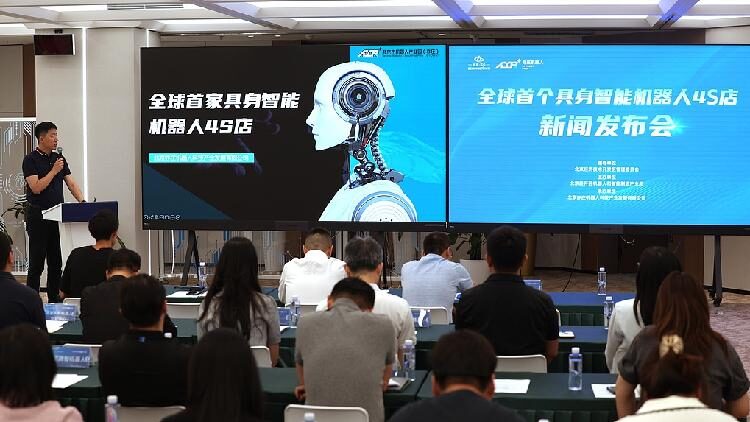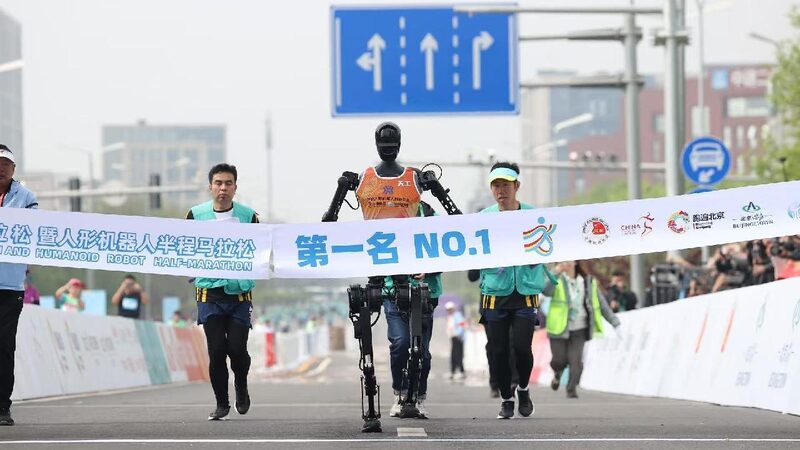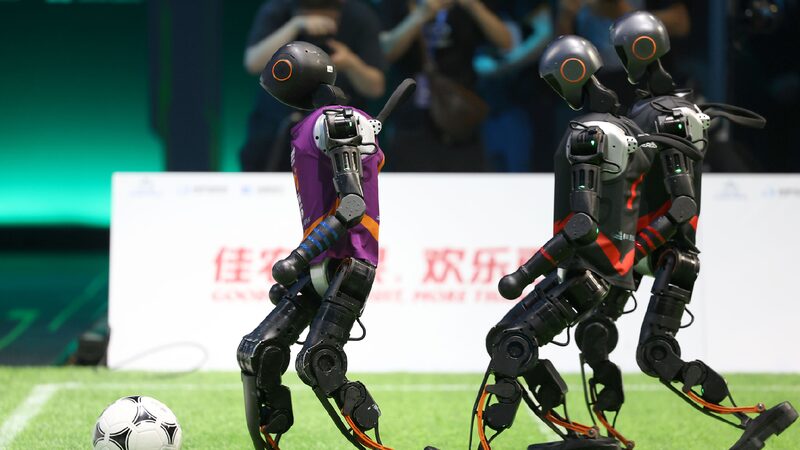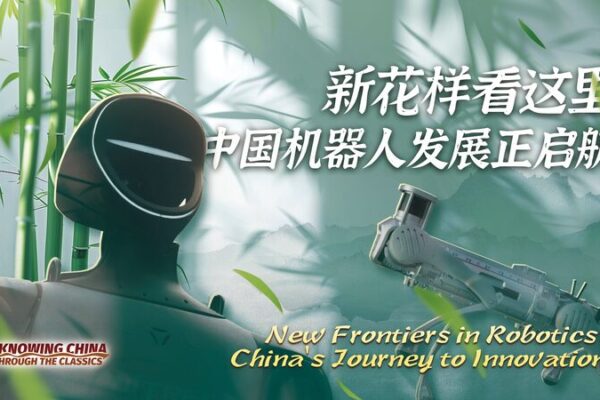The world’s first humanoid robot half-marathon took place in Beijing on Saturday, with Tiangong Ultra, a humanoid robot, making history by completing the 21.0975-kilometer race in 2 hours, 40 minutes, and 42 seconds.
While human athletes can complete the distance in just over an hour, Tiangong Ultra’s achievement showcases the remarkable advancements in robotics technology. Wei Jiaxing, head of public relations at the Beijing Humanoid Robot Innovation Center, shared insights into the robot’s performance.
“Tiangong Ultra achieved its personal best today,” Wei said. “We improved the stability, heat resistance, and shock resistance of its joints. We’ve also upgraded its motion control algorithm to adapt to all kinds of road surfaces.”
Thanks to these enhancements, Tiangong Ultra’s running speed increased from 6 kilometers per hour to a peak of 12 kilometers per hour. The robot only needed three battery changes during the race.
Tang Jian, the center’s chief technology officer, attributed Tiangong Ultra’s success to its design and advanced algorithms. “Our robot has long legs and an algorithm that imitates how humans run a marathon,” Tang explained. “I don’t want to boast, but I think no other robotics firms have matched Tiangong Ultra’s sporting achievements.”
The Beijing Humanoid Robot Innovation Center, partly owned by state-owned enterprises and technology companies, has been at the forefront of humanoid robotics research and development.
Experts believe that events like this not only push technological boundaries but also inspire future innovations. Professor Gai Keke from the Beijing Institute of Technology commented, “This kind of gathering attracts more attention to the industry, giving us more room for imagination. By reviewing the competition process, we can discover new challenges and technical issues. This is significant for accelerating commercialization.”
Renowned science fiction author Liu Cixin also weighed in on the event’s importance. “The robot marathon is a showcase of their ability to move in a stable, balanced way while running,” Liu said. “Robots that can assist the elderly or care for patients have huge market potential. Household robots that can handle chores are extremely useful. Once they reach that level, the impact on daily life will be profound.”
The success of Tiangong Ultra in the half-marathon marks a milestone in robotics, heralding a future where humanoid robots could play a significant role in everyday life.
Reference(s):
Robot Tiangong Ultra wins world's first humanoid half-marathon
cgtn.com
